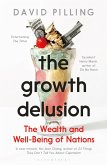This volume examines how far agribusiness corporations are responding to the opportunities and pressures resulting from emerging environmental awareness. In particular, in what ways are they changing their R & D and business practices in order to develop new environmentally oriented products, services and methods of production? And what can they change of their own volition, and where is external direction a necessary condition of environmentally friendly innovation? These questions are explored through investigations of particular biotech and agribusiness companies -- including Monsanto, Ciba Geigy, Dole, and Chiquita -- and their behavior in situations as diverse as California, Europe, Australia, Brazil, and Central America. The volume explores how some have responded to environmental pressures by exploiting new consumer-created markets; some changed their production practices in a sustainable way; while others have complied with (or resisted) state environmental regulation, notably labelling systems and certification. Each study explores how institutional, cultural, economic, political and technological contexts shape the strategies of big business. Topics include 'green bananas', genetically modified tomatoes and soy, the new markets in organic produce, health and pesticides, and access to justice. The book explains why some corporations are successful in introducing environmentally friendly innovations, and others are not. The key to understanding contrasting outcomes is examining the interaction between internal corporate environments where profit and efficiency considerations predominate, and external environments where consumer preferences, NGO pressures and government regulation are important. The book also explores possible new roles for the public sector. The result is a sophisticated and critical analysis of business practices and regulatory systems in the agro-food sector.
Bitte wählen Sie Ihr Anliegen aus.
Rechnungen
Retourenschein anfordern
Bestellstatus
Storno









